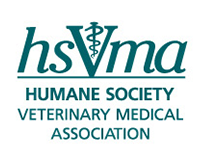| Advocacy |
HSVMA Commends Ross University for Eliminating Terminal Surgeries in Large and Small Animal Veterinary TrainingAugust 19, 2009 The Humane Society Veterinary Medical Association (HSVMA) commends Ross University School of Veterinary Medicine for its recent decision to eliminate terminal surgeries in both its large and small animal surgery training at the school, which is located on St. Kitts, West Indies. According to a news report from DVM Newsmagazine, the school is replacing the terminal surgeries—procedures in which the animals are euthanized rather than recovered after surgery—with the use of animal models, cadaver specimens and other alternatives for practicing surgical techniques, and with supervised training on animals who will be allowed to recover. The Ross University announcement is especially significant because the school is discontinuing the practice in large animal training, which typically involves horses, sheep, cows, pigs and other farm animals, in addition to eliminating terminal surgeries from its small animal training. "Traditionally, humane improvements in large animal surgical training have lagged behind the progress that has been made in small animal surgical training," said Dr. Susan Krebsbach, an HSVMA veterinary consultant. "We welcome the move by Ross University to treat farm animals with equal respect and to convey the reverence for life philosophy for all species to their students, as well." Over the last two years, HSVMA has offered support and guidance to students at Ross University who were seeking alternatives to terminal surgeries. The change means that no Ross University student will face the ethical dilemma of having to kill a patient as part of his or her training. Similar changes have been made at other veterinary schools in the United States in recent years as veterinary faculty and students push for programs that provide training opportunities for students as well as beneficial treatment for animals in need. Oklahoma State University Center for Veterinary Health Sciences announced in April that the school would no longer conduct terminal procedures and instead would provide spay and neuter surgeries for animals from local shelters who are returned for adoption. This is a win-win situation for the veterinary students, the veterinary school, and, of course, the animals. HSVMA looks forward to similar progressive change at other veterinary schools in the near future. |
